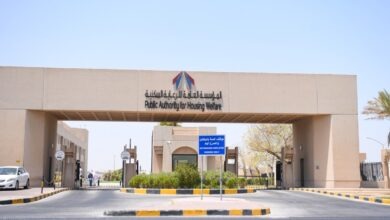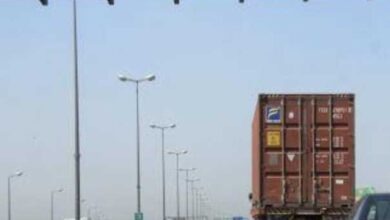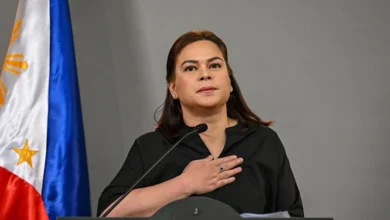UNHCR, IOM host key forum in Kuwait on protection of migrants
The sessions introduced several fundamental principles of international refugee, migration and humanitarian law.
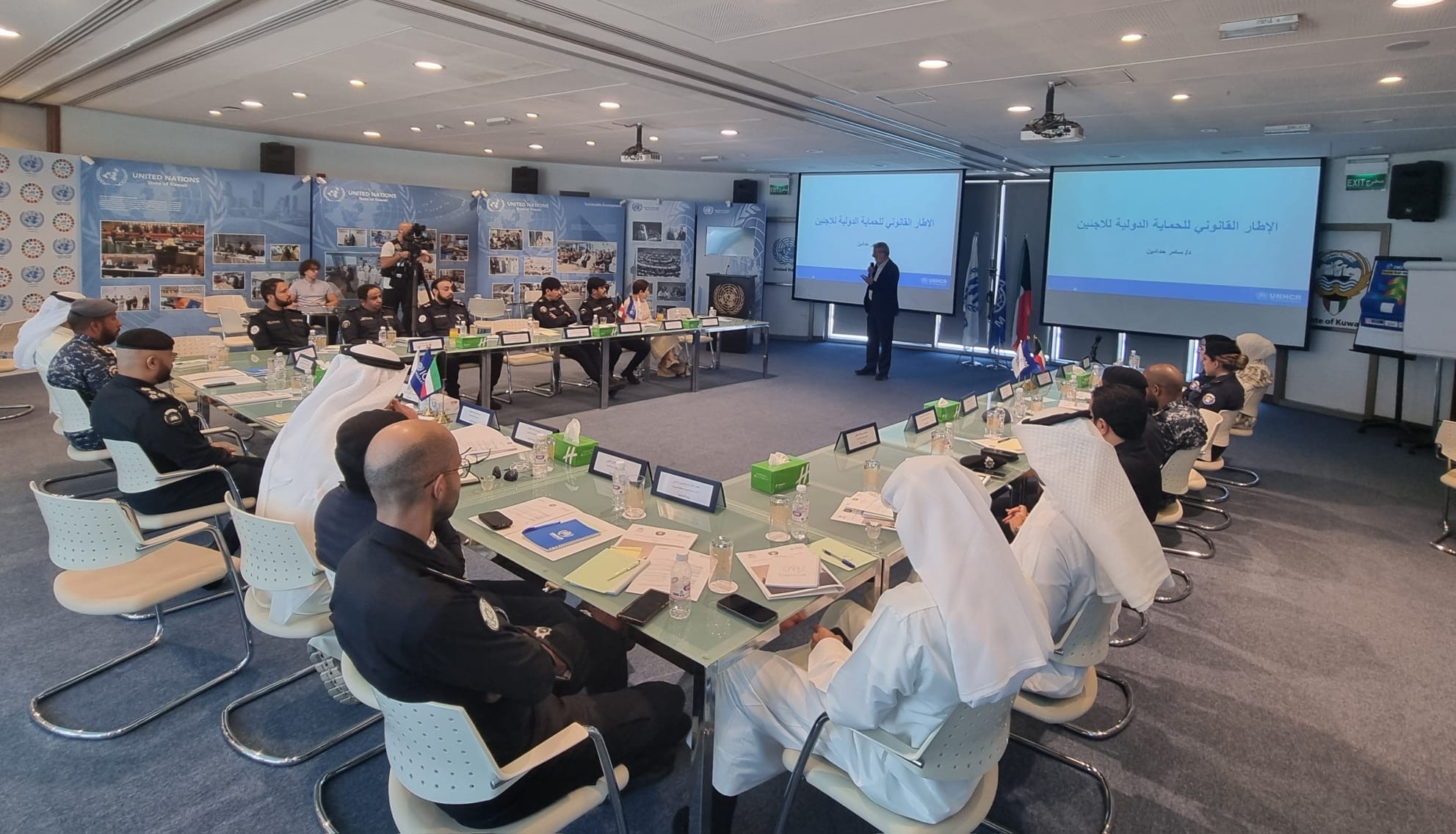
• Nisreen Rubaian, the UNHCR representative in Kuwait, stated that the role of the organization extends beyond fundraising and mobilizing resources for humanitarian response in collaboration with donor countries and the private sector.
• Kuwait is a state with effective institutions, both in policy and practice. It has a clear system and responsibilities, operating at the highest levels of training and readiness, said Dr. Samer Haddadin, an expert in international law.
• While UNHCR highlighted the principle of non-refoulement in international protection, IOM outlined migration law and guidelines for protecting trafficking and smuggling victims.
On Tuesday, the UNHCR and the International Organization for Migration (IOM) hosted a three-day discussion at the United Nations House in Kuwait, focusing on the protection of migrants and those seeking international protection.
The discussion session was attended by participants from relevant government agencies, including officials responsible for border crossings, law enforcement, residency investigations, and deportations.
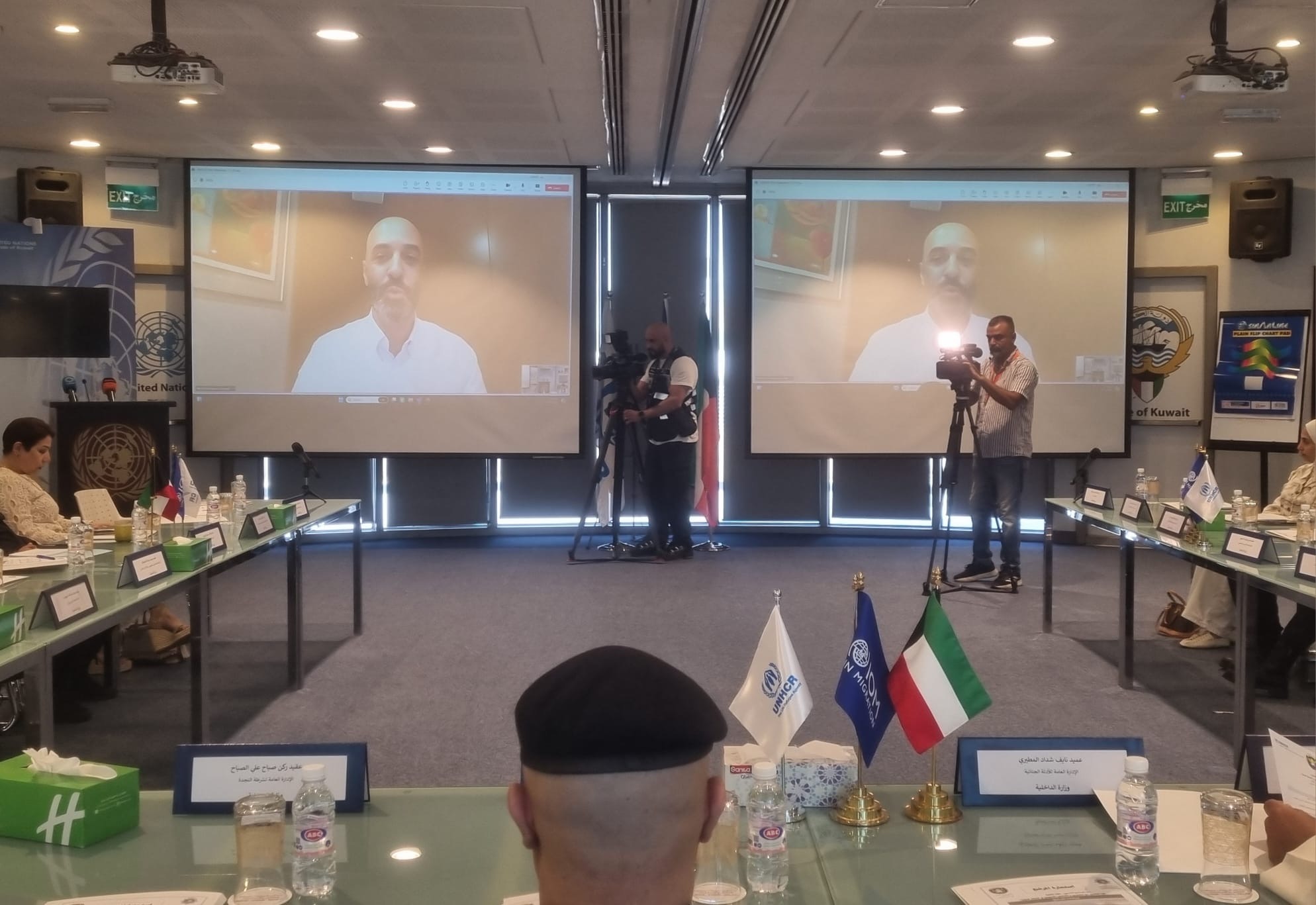
The sessions introduced several fundamental principles of international refugee and migration law, as well as international human rights and humanitarian law, such as the principle of non-refoulement, international solidarity in burden-sharing, voluntary return to the country of origin, durable solutions, and principles related to detention and legal procedures concerning migrants and persons in need of international protection.
The sessions were co-facilitated by the UNHCR and IOM Kuwait offices for senior government officials from various departments within the Ministry of Interior (MoI) and the Ministry of Defense (MoD).
UNHCR presented the legal foundations of international protection and emphasized the principle of non-refoulement as a cornerstone of international law. Additionally, IOM covered international migration law and the main guidelines for protecting victims of trafficking and smuggling.
Both UN agencies discussed the challenges and opportunities for improving the implementation of relevant guidelines and principles to prevent human rights violations, foster global solidarity and shared responsibility, and encourage joint collaboration to protect the rights of people on the move globally.
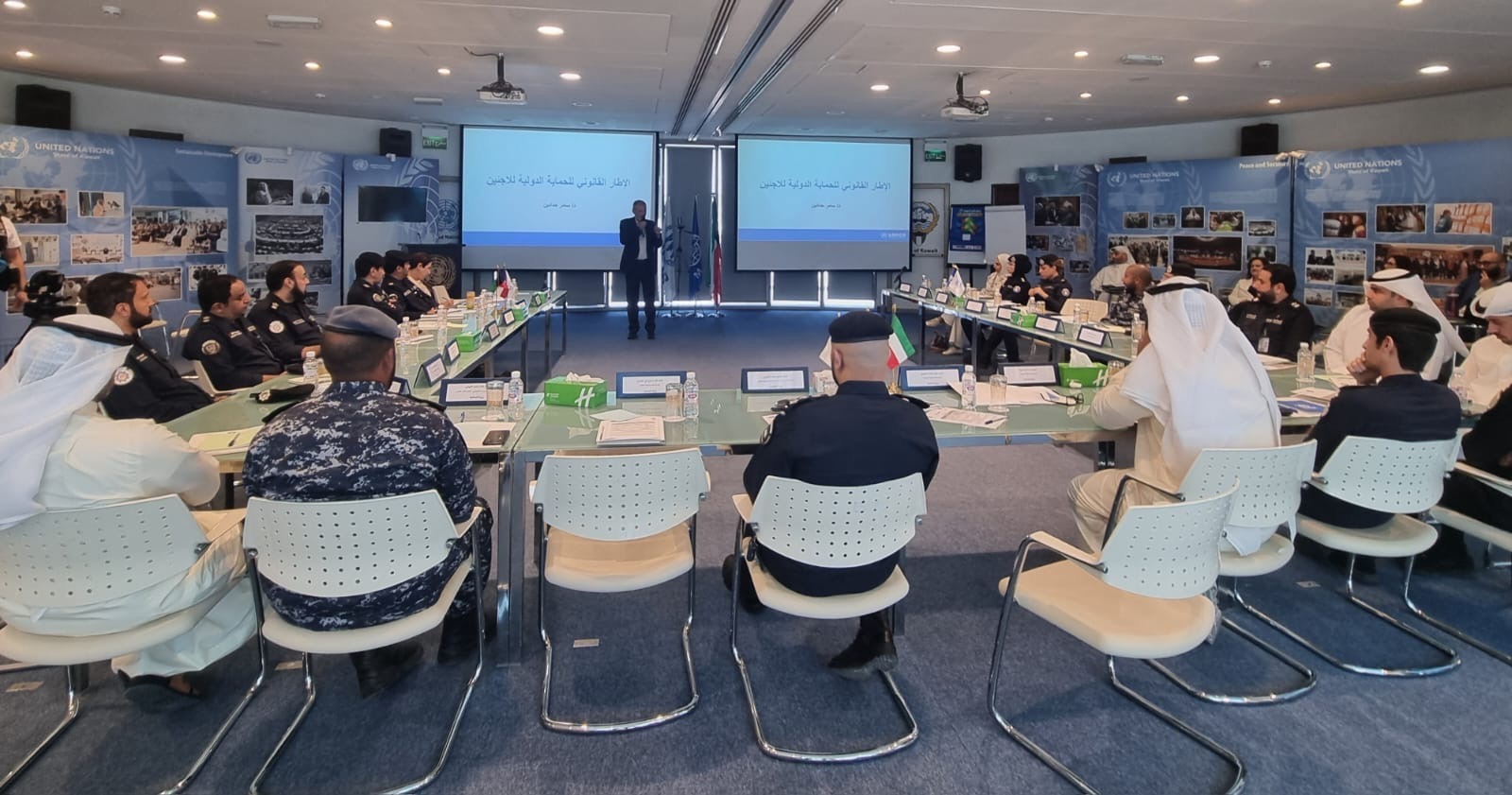
Nisreen Rubaian, the UNHCR Representative in Kuwait, highlighted the importance of holding such sessions in Kuwait and stated: “UNHCR’s role extends beyond fundraising and mobilizing resources for humanitarian response in collaboration with donor countries and the private sector. It also focuses on raising awareness about the principles of International Human Rights Law through capacity building for local organizations and policymakers. This ensures that these principles are upheld and implemented effectively, thereby strengthening the overall protection framework for refugees and other individuals who may need international protection.”
Enhancing international cooperation in migrant protection
Mr. Mazen AboulHosn, the IOM Chief of Mission in Kuwait, emphasized the importance of enhancing international cooperation in migrant protection, saying: “Our collaboration with the Ministry of Interior has been ongoing in Kuwait for many years. We are pleased to organize this discussion session, together with UNHCR, for the National Security College to enhance the understanding and application of international migration law. This session is a testament to our commitment to highlighting protection mechanisms that cover migrants, including temporary contractual workers.”
Brigadier General Mishaal Hadi Al-Huweila, Director General of the National Security College, stated that this event is specifically intended for all members of the Ministry of Interior, including male and female police officers from the rank of Lieutenant Colonel and above. It also includes officials from the National Security College responsible for border crossings, law enforcement, managing residency violations, and overseeing deportation operations.
Meanwhile, Colonel Abdulwahab Ibrahim Al-Najada, Director of the Institute of Strategic Security Studies,emphasized the importance of these discussion sessions. He noted that this is the third collaboration with the United Nations High Commissioner for Refugees (UNHCR), involving participants from the Ministry of Interior and various ministries and state agencies. The goal is to develop solutions for various issues, enhance the efficiency of ministry employees in both administrative and field operations, and help them acquire necessary skills. He also expressed hope that participants will gain significant benefits from this discussion session.
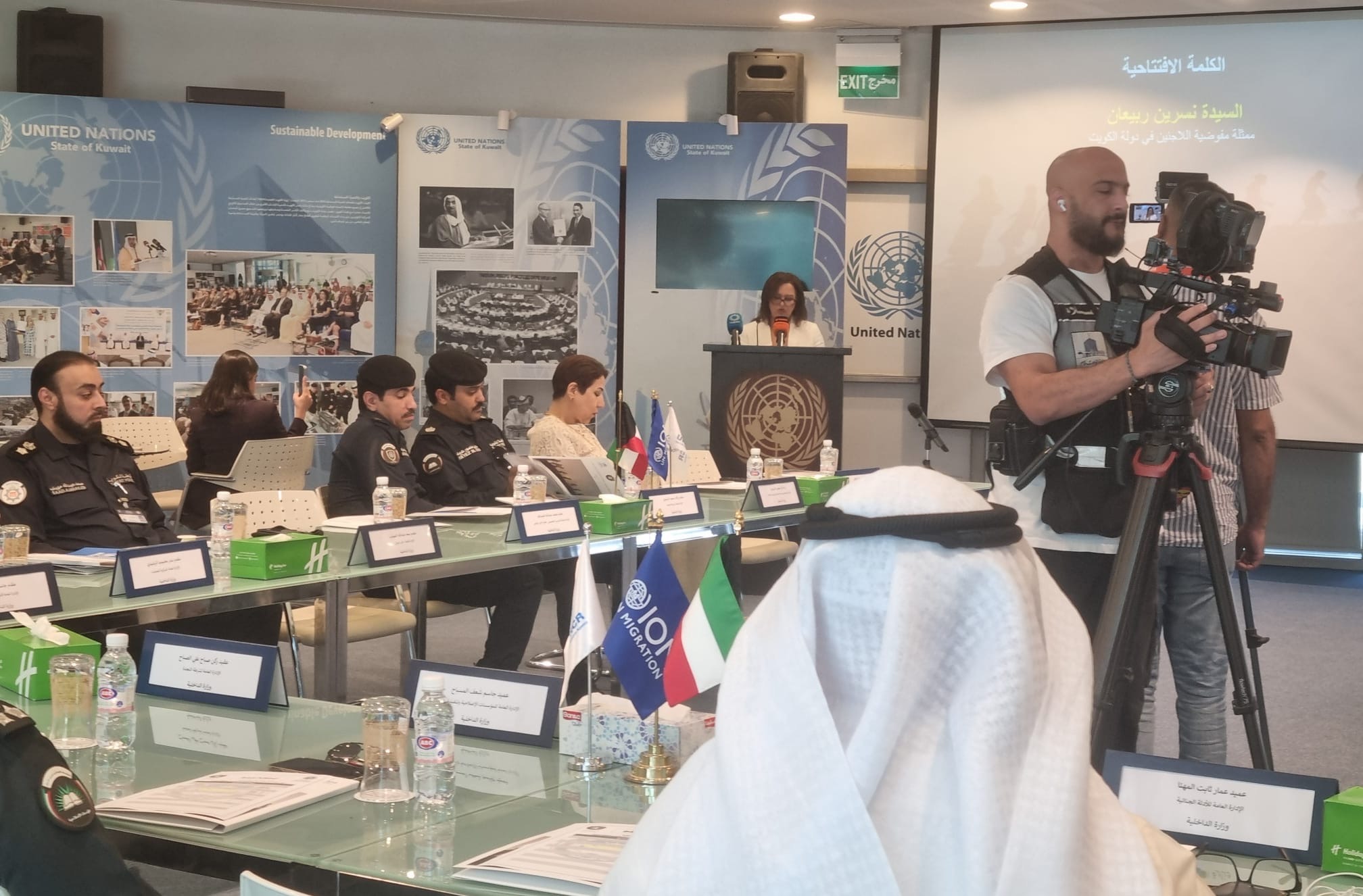
Al-Najada emphasized the commitment of security leadership, including Sheikh Fahd Al-Yousef, First Deputy Prime Minister and Minister of Interior, and General Sheikh Salem Nawaf Al-Ahmad, Undersecretary of the Ministry of Interior, to support education and training that strengthens the security system. This support extends to all employees of the Institute for Strategic Security Studies at the National Security College.
“Migrants and refugees one of the most pressing global issues”
In his speech during the opening of a panel discussion titled “The Mechanism of Dealing with Migrants and Persons Covered by International Protection” at the United Nations building on Monday, he highlighted that migrants and refugees have become one of the most pressing global issues. This situation demands international cooperation and ongoing coordination among relevant authorities to ensure effective protection and guarantee the rights of individuals forced to leave their homelands. He emphasized that addressing this issue extends beyond the security dimension to include humanitarian, legal, and social aspects, requiring serious effort and strategic planning.
He also expressed gratitude to the Office of the United Nations High Commissioner for Refugees for their continuous support and fruitful collaboration in organizing these seminars. He hoped that this seminar would mark the beginning of deeper cooperation and greater coordination among all concerned parties and result in effective recommendations to strengthen protection mechanisms and provide necessary support for migrants and refugees.
Protection of migrants
In turn, Nisreen Rubaian, the UNHCR representative in Kuwait, stated that, in cooperation with the International Organization for Migration, they held a panel discussion with relevant Ministry of Interior employees, such as those involved with border ports, airports, and immigration management, to exchange views on cooperation mechanisms for working with migrants and individuals under international protection.
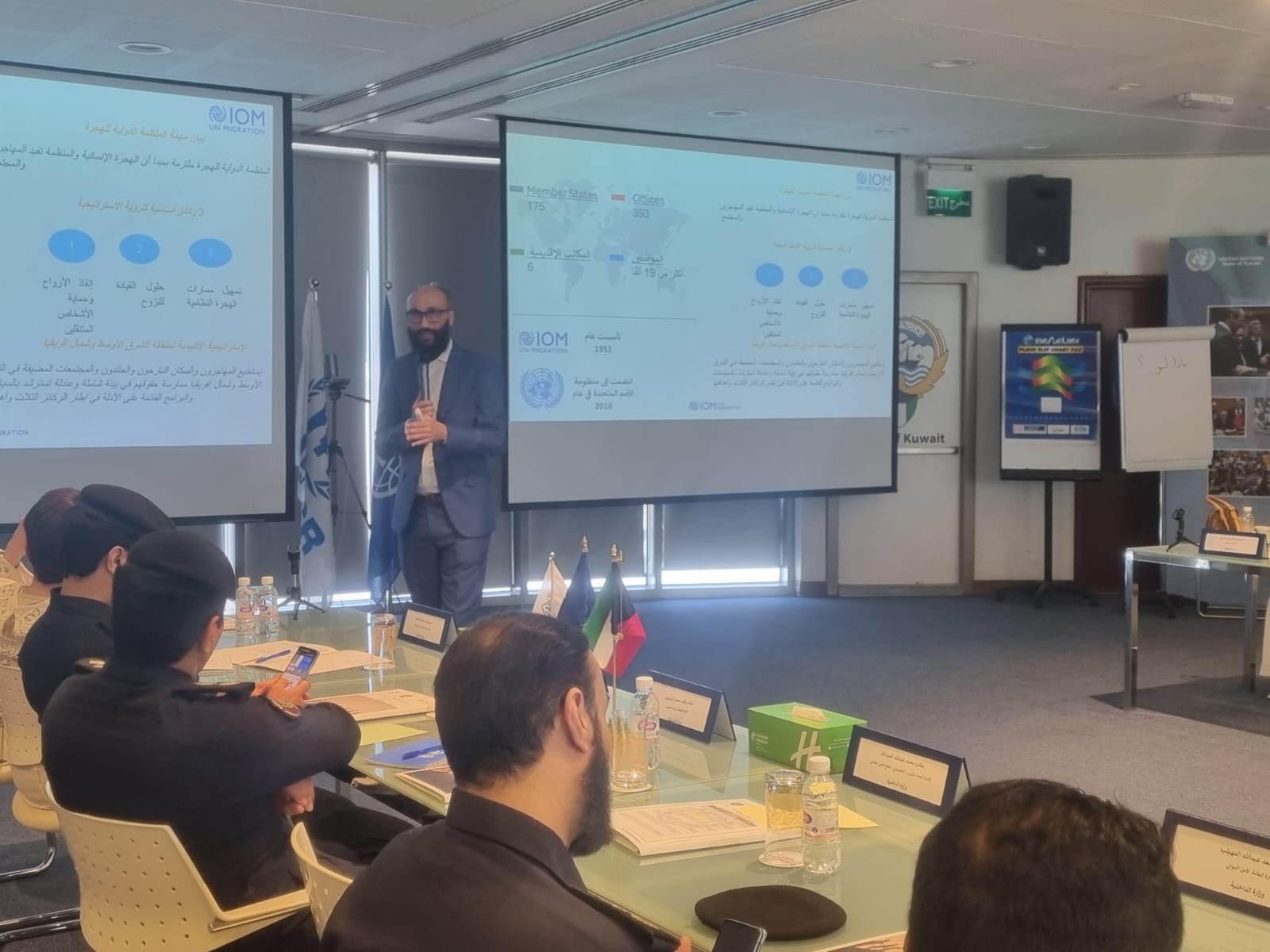
She added that their mission involves international protection, and their goal is to highlight the challenges faced by these individuals. She explained that there are distinct mechanisms for dealing with migrants and refugees, each with its own implications.
Regarding her work on the situation of expatriate workers in Kuwait, given that Kuwait is not a country of migration or asylum, she expressed her satisfaction with the Ministry of Interior’s openness to joint cooperation.
She emphasized that the purpose is to exchange views and experiences, and to promote knowledge of international conventions. Such activities are carried out globally, including within the European Union, as part of the Commission’s mandate.
She noted that their role extends beyond financial contributions to include an international mandate since 1950, with the Ministry of Interior being a key partner in these efforts.
She explained that UNHCR is dedicated to supporting individuals seeking international protection or refugees and that while there is cooperation with the Ministry of Interior, there has been no direct communication with those seeking international protection in Kuwait so far.
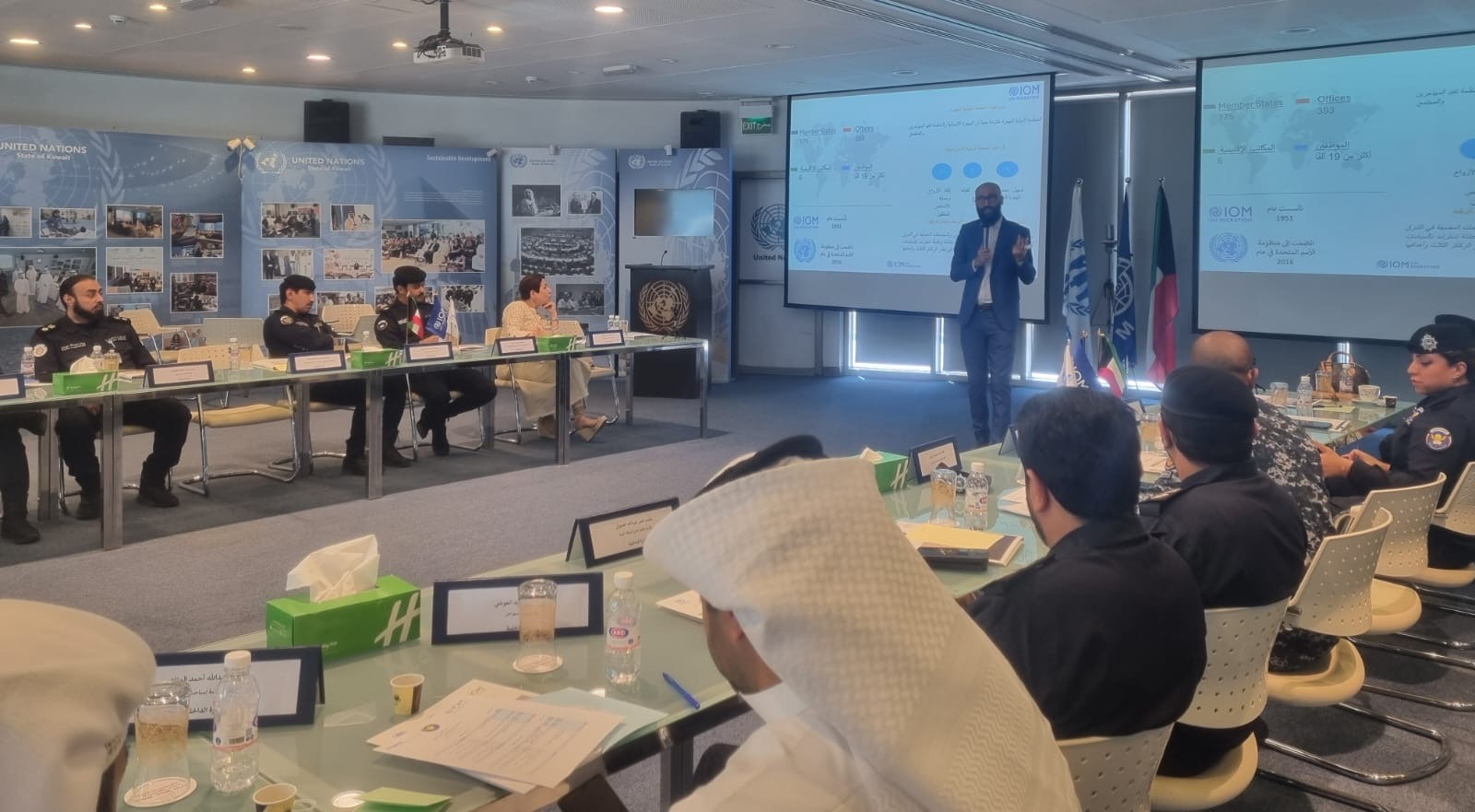
Training on refugee protection
For his part, Dr. Samer Haddadin, an expert in international law, emphasized that his participation in this workshop is a crucial part of UNHCR’s global activities, including in Kuwait. His focus is on raising awareness, conducting studies, and providing training on refugee protection.
He added that these events align with Kuwait’s policy of keeping its organizations updated with the latest international developments. He noted that Kuwait plays an active role at both international and humanitarian levels, supporting efforts to address asylum issues and seeking permanent solutions.
Dr. Haddadin explained that his presence today aims to share experiences with the Kuwaiti side and benefit from Kuwaiti expertise in this field.
He discussed the different types of migration—emergency, temporary, and permanent—explaining that Kuwait is not a country of migration. He clarified that there is a distinction between general movement between countries and migration in its broader sense.
Kuwait tackles global challenges in upholding human rights and citizen welfare
He noted that Kuwait is a state with effective institutions, both in policy and practice. It has a clear system and responsibilities, operating at the highest levels of training and readiness. He pointed out that, as the world constantly evolves, Kuwait faces challenges similar to those encountered by any advanced country, specifically in executing its tasks while adhering to international standards for human rights and dignity, and ensuring the welfare of its citizens and residents.
He also mentioned that a country can only earn the title of humanity through universally recognized efforts, quoting an ancient Indian proverb: “Gods place great burdens on great souls.”
Mechanisms for cooperating with migrants
In turn, the Acting Head of the International Organization for Migration Mission, Imam Tarkhan, explained that this panel discussion differs from previous ones as it is conducted in cooperation with UNHCR and focuses specifically on the mechanisms for cooperating with migrants and individuals under international protection.
Regarding his perspective on Kuwait’s recent mechanisms for managing expatriate labor, he noted that there are areas for development within the Ministry of Interior, which are evident at all levels. These improvements serve the interests of both residents and the state, enhancing several mechanisms. Additionally, these courses will advance the ministry’s objectives and ensure compliance with international standards for migrant protection and the broader framework of migration.
Ministry of Interior is a permanent partner of the UNHCR
He explained that the organization has held twentysessions in cooperation with the Ministry of Interior and continues this collaboration, marking the third such session this year. He described the Ministry of Interior as a permanent partner of the organization, with aligned objectives.
Kuwaiti care homes
Regarding Kuwaiti care homes and their alignment with international standards, Tarkhan noted that they have conducted many tours of external shelters to observe practices in developed countries. He pointed out that Kuwait’s standards for dealing with violators are very high and, in some cases, surpass those of other regional countries. These standards are in line with international norms and contribute to strengthening the capacities of shelters, which are among the strongest.








